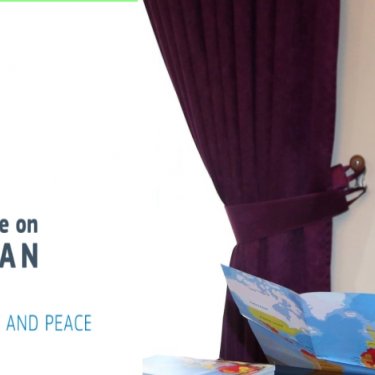Both Afghan government and international community must protect journalists and media in Afghanistan

On the eve of a two-day international conference in Brussels on Afghanistan, Reporters Without Borders (RSF) reiterates its appeal to the Afghan government and to the governments of participating countries, including the European Union, to defend press freedom, journalists and the media in Afghanistan.
More than 70 countries and 20 international organizations and agencies are attending the conference, which has been organized by the EU and the Afghan government.
The conference is intended to allow the Afghan government to defend its record on reforms, explain its plans for the future, and urge the international community to pledge lasting political and financial support for peace, the consolidation of the state and development in Afghanistan.
RSF is using the occasion to express deep concern about the safety of hundreds of journalists and media outlets in several Afghan provinces where attacks by the Taliban and Islamic State (Daesh) have intensified.
Around ten media outlets and 100 journalists are currently operating in these provinces under direct threat from rebel forces and sometimes under pressure from local authorities. According to RSF’s tally, there have been at least 35 cases of violence against journalists and media in Afghanistan since the start of the year.
“On the eve of the conference, the Taliban stepped up their attacks in several regions including Kunduz and Helmand,” said Reza Moini, the head of RSF’s Afghanistan bureau. “Journalists have been forced to flee. In the light of the critical situation in Afghanistan, we reiterate the need to create the position of special representative of the UN secretary-general for the safety of journalists.”
The government, police and security services have a duty to protect journalists and media outlets. Guaranteeing the safety of the Afghan people includes protecting the right of journalists to provide them with news and information. At this time of danger, the democratic nations involved in Afghanistan must also face up to their responsibilities. We must not let Afghan journalists be discouraged by the Taliban threats and by the international community’s silence.
Journalists have paid a high price. At least 35 journalists have been killed in connection with their work in Afghanistan since 2001. They include 16 foreign journalists (four Germans, two Americans, two French, two Italians, two Swedes, one Australian, one Canadian, one Norwegian and one Briton). Most of these journalists were killed by the Taliban and most of these deaths have gone unpunished.
The Taliban and Islamic State are media freedom predators and one of their leading goals is to deprive the public of independently reported news and information by creating a climate of terror and reducing the media to silence.
Despite courageous efforts by journalists to do their duty to provide news coverage, Afghanistan’s war zones – the provinces of Helmand, Kunduz, Baghlan, Nangarhar, Takhar, Ghazni and Farah – are in the process of becoming news and information “black holes” in which media freedom is disappearing.
The single deadliest attack on the media since the fall of the Taliban government in 2001 – the suicide bombing of a Kabura production company bus in Kabul on 20 January 2016 that killed seven Moby Group media workers – was typical of the Taliban policy of undermining peace and democracy.
The attack was clearly premeditated because Tolo TV and 1TV – Afghanistan’s two leading privately-owned TV channels – were named as “military targets” in a Taliban communiqué on 12 October 2015.
Signed by the “Islamic Emirate of Afghanistan’s Military Commission,” it said: “We henceforth regard Tolo TV and 1TV as military targets, not as news media (...) Nothing is safe from our attacks, neither personnel (presenter, reporters or crews) nor the building themselves.”
RSF finds it unacceptable that democratic countries and the Afghan government do not condition all negotiations with the Taliban on an explicit prior commitment to respect to respect the Geneva Conventions and the other basic international humanitarian law treaties – treaties that these countries have themselves signed.
RSF calls on President Ashraf Ghani and Chief Executive Abdullah Abdullah to implement effective measures to protect journalists and it supports this appeal by the Afghanistan Journalists Federation:
“We, Afghan journalists and members of the Afghan media, call on all of you at the Brussels Conference to make the Afghan government more accountable in providing information, implementing laws and regulations to support free media and to ensure the safety of journalists. We also reiterate our calls to the international community to support Afghan media on the road to sustainability throughout the decade of transformation.”
Afghanistan’s recent history shows that it is impossible to build peace without enforcing justice. The violence against journalists is encouraged by the systematic impunity for those responsible for the violence. RSF points out that murders of journalists are not only crimes against freedom of expression but must also be treated as war crimes and, as such, must be punished severely.
Afghanistan is ranked 120th out of 180 countries in RSFs 2016 World Press Freedom Index.



